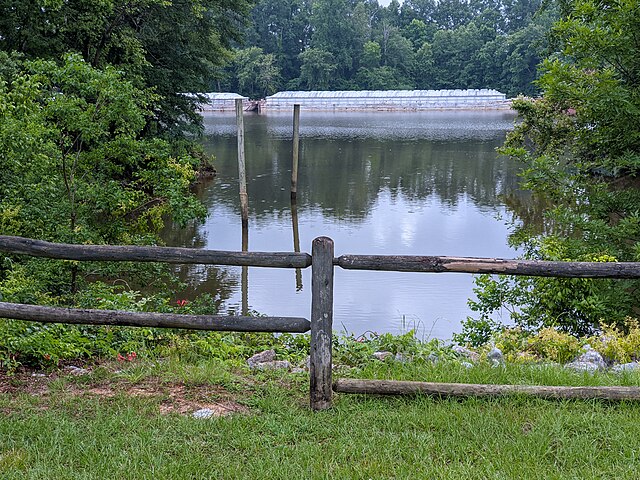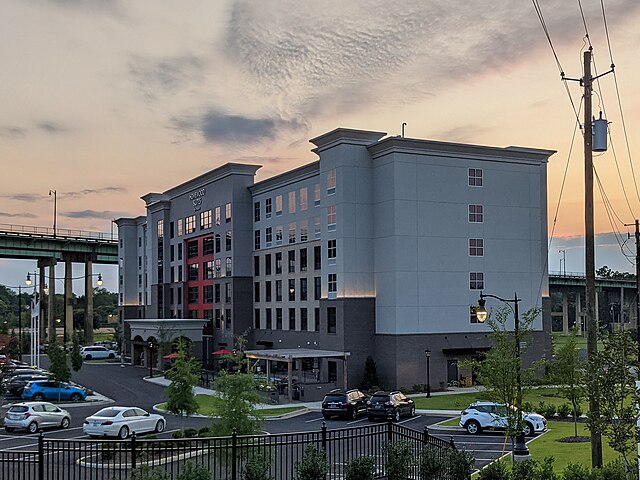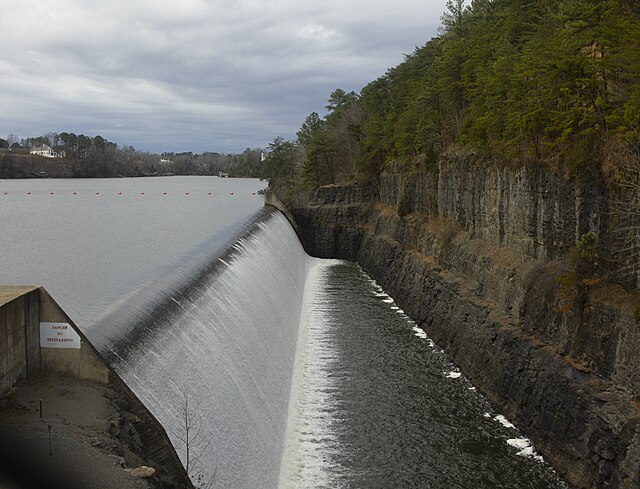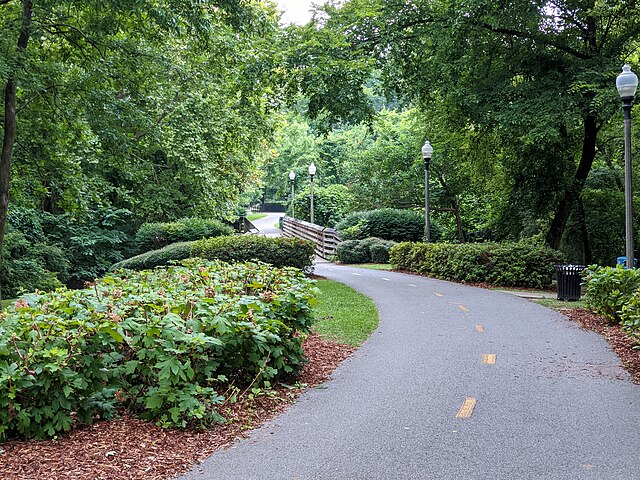Welcome to Tuscaloosa, Alabama, where the weather is as vibrant and dynamic as the Crimson Tide spirit! Whether you’re a local, a University of Alabama student, or just passing through, understanding Tuscaloosa’s weather is key to making the most of your time here. From sultry summers to mild winters, and the occasional thunderstorm rolling in, this city’s climate keeps you on your toes. In this guide, I’ll walk you through everything you need to know about Tuscaloosa’s weather patterns, how to prepare for them, and how to embrace each season like a true Alabamian. Ready to dive into the forecast? Let’s get started!
What Makes Tuscaloosa Weather So Unique?
Tuscaloosa’s weather is like a good Southern story—full of twists, turns, and a whole lot of character. Nestled in west-central Alabama, the city sits in a humid subtropical climate zone, which means you get a mix of hot, sticky summers, mild winters, and everything in between. The Black Warrior River running through town adds a touch of humidity, while its inland location means it’s not as prone to coastal hurricanes but still gets its fair share of stormy action. What’s the result? A climate that’s equal parts predictable and surprising, keeping residents and visitors guessing.
The Role of Geography in Shaping the Climate
Tuscaloosa’s spot along the Black Warrior River and its distance from the Gulf of Mexico play big roles in its weather. The river keeps humidity levels high, especially in summer, making it feel like you’re walking through a warm, wet blanket. Meanwhile, being inland shields the city from direct hurricane hits, but tropical systems can still bring heavy rain and wind as they weaken over land. The gently rolling terrain also means cold fronts and warm air masses can clash, sparking thunderstorms or even the occasional tornado. It’s like Mother Nature’s own drama unfolding right above your head!
A Seasonal Breakdown of Tuscaloosa Weather
Tuscaloosa’s seasons are like chapters in a book—each one has its own vibe, and you’ll want to be ready for every page. Let’s break it down season by season so you know what to expect, whether you’re planning a tailgate or a quiet hike.
Spring: A Blooming, Stormy Affair
Spring in Tuscaloosa, from March to May, is a rollercoaster of beauty and chaos. Temperatures range from the mid-50s to the upper 70s, with flowers bursting into bloom and the air smelling like fresh grass. But don’t let the sunshine fool you—spring is also peak tornado season. Warm, moist air from the Gulf collides with cooler northern air, creating unstable conditions. In fact, April is often the stormiest month, with thunderstorms and the occasional severe weather event. Pro tip: Keep a weather app handy and know where your safe spot is!
What to Wear in Spring
Dressing for spring is like packing for a trip with unpredictable stops. Layers are your best friend—think lightweight jackets, breathable tees, and a sturdy pair of shoes for those sudden downpours. Don’t forget an umbrella or a raincoat, because when it rains in Tuscaloosa, it pours!
Summer: Hot, Humid, and Full of Energy

Summer in Tuscaloosa, from June to August, is like stepping into a sauna. Daytime highs often hit the low 90s, with humidity making it feel closer to 100°F. Nights don’t cool off much, staying in the 70s. Thunderstorms pop up frequently, especially in the afternoons, but they’re usually quick, leaving behind steamy air and a chance to catch a stunning sunset. This is the season for pool days, barbecues, and cheering on the Crimson Tide at summer practices.
Staying Cool in the Heat
Beating the summer heat is a Tuscaloosa art form. Hydrate like it’s your job, seek out air-conditioned spots like the River Market, and embrace lightweight, loose-fitting clothes. Locals swear by sweet tea and shaded porches to keep cool—why not join them?
Fall: Football and Fabulous Weather
Fall, from September to November, is Tuscaloosa’s golden season. Temperatures drop from the 80s to the 60s, humidity eases up, and the city comes alive with football fever. The leaves turn shades of crimson and gold, mirroring the team colors, and crisp evenings are perfect for bonfires or strolling the Quad. Rainfall tapers off, but late-season tropical systems can still bring wet days. If you’re here for a game at Bryant-Denny Stadium, fall weather is your MVP.
Game Day Weather Tips
Tailgating in Tuscaloosa is a sacred tradition, but fall weather can be tricky. Bring sunscreen for sunny afternoons, a light jacket for cooler evenings, and a poncho just in case. Nothing says “Roll Tide” like being prepared for anything!
Winter: Mild with a Side of Chill
Winter in Tuscaloosa, from December to February, is more like a cool breeze than a deep freeze. Highs range from the 50s to low 60s, with lows dipping into the 30s. Snow is rare—think once every few years—but ice storms can happen, making roads slippery. Most days are sunny or partly cloudy, perfect for outdoor activities like hiking at Lake Lurleen State Park. It’s a great time to enjoy the city without the summer crowds.
Winter Wardrobe Essentials
Winter calls for cozy but versatile gear. A medium-weight jacket, scarves, and closed-toe shoes will keep you comfortable. Keep a pair of gloves in your car for those frosty mornings, but don’t worry about heavy parkas—you won’t need them here.
Extreme Weather in Tuscaloosa: What You Need to Know

Tuscaloosa’s weather isn’t all sunshine and sweet tea. The city’s location in the Southeast puts it in the path of some serious weather events, from thunderstorms to tornadoes. Being prepared is as important as knowing the score of the Alabama game.
Tornadoes: A Springtime Threat
Tuscaloosa is no stranger to tornadoes, especially in spring. The devastating 2011 tornado outbreak left a lasting mark on the community, but it also strengthened local resilience. Today, the city has robust warning systems, including sirens and weather alerts. If you’re new to town, identify a safe place in your home (like a basement or interior room) and practice your tornado drill. It’s like learning the fight song—you hope you never need it, but you’ll be glad you know it.
Thunderstorms and Flash Flooding
Thunderstorms are a Tuscaloosa staple, especially in summer and spring. They can bring heavy rain, lightning, and gusty winds, sometimes leading to flash flooding. Avoid low-lying areas during heavy rain, and never drive through flooded roads—turn around, don’t drown! A good weather radio or app like NOAA Weather can keep you in the loop.
How to Stay Weather-Ready in Tuscaloosa
Staying ahead of Tuscaloosa’s weather is like calling the right play in a football game—it takes preparation and quick thinking. Here’s how to be ready for whatever Mother Nature throws your way.
Build a Weather Emergency Kit
Every Tuscaloosa household should have a weather emergency kit. Stock it with essentials like water, non-perishable food, flashlights, batteries, a first-aid kit, and a portable phone charger. Toss in some snacks and a deck of cards for good measure—waiting out a storm is more fun with a little entertainment.
Stay Informed with Local Resources
Tuscaloosa’s local meteorologists, like James Spann, are practically celebrities for their spot-on forecasts. Follow them on social media, tune into WVUA 23, or check the National Weather Service for updates. Apps like AccuWeather or Weather Underground are great for real-time alerts, especially during severe weather season.
Fun Ways to Embrace Tuscaloosa’s Weather
Tuscaloosa’s weather isn’t just something to endure—it’s something to celebrate! Each season offers unique ways to enjoy the city’s climate, from outdoor adventures to cozy indoor activities.
Spring and Summer Outdoor Adventures
When the weather’s warm, head to Lake Tuscaloosa for boating, fishing, or a picnic. The Tuscaloosa Riverwalk is perfect for a sunny stroll, with stops for ice cream or coffee. For a shaded escape, explore the trails at Munny Sokol Park. Just don’t forget your sunscreen and bug spray!
Fall and Winter Cozy Vibes
Fall is prime time for tailgating, but it’s also great for visiting local farmers’ markets or sipping hot cider at a café downtown. In winter, warm up with a bowl of gumbo at a local spot like Baumhower’s or catch a show at the Bama Theatre. Tuscaloosa’s weather makes every season feel like an event.
Tuscaloosa Weather and Local Culture
In Tuscaloosa, weather isn’t just small talk—it’s part of the culture. From game day tailgates to storm recovery efforts, the climate shapes how people come together. The 2011 tornado, for example, sparked a wave of community spirit, with neighbors helping neighbors rebuild. Today, you’ll hear locals swap stories about epic storms or perfect football weather with the same passion they reserve for Alabama football. It’s like the weather is part of the city’s heartbeat.
Climate Trends and the Future of Tuscaloosa Weather

Like much of the Southeast, Tuscaloosa’s climate is evolving. Temperatures are creeping up, and extreme weather events like heatwaves and heavy rain are becoming more common. Local efforts, like tree-planting initiatives and sustainable urban planning, aim to keep the city resilient. What does this mean for you? Stay mindful of your environmental impact—small actions like conserving water or supporting local green spaces can help keep Tuscaloosa’s weather as welcoming as its people.
Conclusion: Roll with the Tuscaloosa Weather
Tuscaloosa’s weather is a wild, wonderful ride, full of sunny highs and stormy surprises. Whether you’re sweating through a summer game day, bundling up for a winter walk, or chasing spring rainbows, this city’s climate adds flavor to every moment. By understanding the seasons, preparing for extremes, and embracing the local vibe, you’ll be ready to roll with whatever the forecast brings. So grab your sunglasses, keep an umbrella handy, and dive into the Tuscaloosa weather—it’s as unforgettable as a Crimson Tide victory!
FAQs About Tuscaloosa Weather
1. What’s the best time of year to visit Tuscaloosa?
Fall (September to November) is a fan favorite, with mild temperatures, lower humidity, and vibrant football season energy. Spring is also lovely but comes with a higher chance of storms.
2. How often does Tuscaloosa get tornadoes?
Tornadoes are most common in spring, especially March to May. While not frequent, the city is in a tornado-prone region, so staying prepared is key.
3. Does Tuscaloosa ever get snow?
Snow is rare, happening maybe once every few years. When it does, it’s usually light and doesn’t stick around long. Ice storms are a bigger concern.
4. How can I stay safe during a Tuscaloosa thunderstorm?
Stay indoors, avoid open fields or tall trees, and unplug electronics. Keep a weather radio or app for alerts, and never drive through flooded areas.
5. What’s the average temperature in Tuscaloosa?
Annual highs range from the 50s in winter to the 90s in summer, with lows from the 30s to 70s. Humidity makes summers feel hotter and winters feel chillier.

